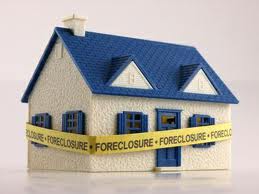A January 11, 2011 opinion by the U.S. Supreme Court is expected to drastically increase potential disposable income in Chapter 7 and 13 bankruptcy cases in Tampa, Florida. This may cause someone who previously qualified for a Chapter 7 bankruptcy not to qualify, or to increase the Chapter 13 plan payment by $500.
You see prior to Ransom v. FIA Card Services, N.A., our local (often considered debtor friendly) Tampa Division would generally allow a $496 ownership credit toward a vehicle (two credits were allowed if debtors were married or had reason for an additional vehicle). This $496 credit would be allowed even if the car payment was less than $496 or if there was no car payment and it was owned free and clear. A debtor only needed to own or lease a vehicle to claim the ownership credit. A separate credit is used for vehicle operating expenses. The reasoning in the Tampa Bay area was in part if the debtor was driving an older paid off vehicle, at some point during a 3-5 year plan the debtor would have to purchase a replacement vehicle. Allowing the credit would permit the debtor to both save some money for the down payment as well as afford the payment when the replacement vehicle was purchased.
Following the 8-1 decision in Ransom, our local Chapter 13 Trustees and Judges can no longer allow a debtor to reduce disposable monthly income (DMI) by claiming a vehicle ownership expense when the debtor has no associated loan or lease payment for the vehicle. In some other areas of Florida or elsewhere around the country, debtors already were not allowed to claim the expense, so this won’t have any effect on them. But here in Tampa, this is a major disappointment.
 Reboot Your Life: Tampa Student Loan and Bankruptcy Attorney Blog
Reboot Your Life: Tampa Student Loan and Bankruptcy Attorney Blog


 I don’t know about you, but I always have my cell phone with me. While fortunately I do not have debt collectors calling me on my cell phone, a lot of my clients here in the Tampa Bay area are troubled by this every day. Many report receiving several calls per day from the same debt collector. Come on, if a person doesn’t have the money in the morning, are they really going to have it in the afternoon, or even an hour later? Realistically, these calls are meant to do one thing: harass you into paying the debt.
I don’t know about you, but I always have my cell phone with me. While fortunately I do not have debt collectors calling me on my cell phone, a lot of my clients here in the Tampa Bay area are troubled by this every day. Many report receiving several calls per day from the same debt collector. Come on, if a person doesn’t have the money in the morning, are they really going to have it in the afternoon, or even an hour later? Realistically, these calls are meant to do one thing: harass you into paying the debt. Two banks couldn’t prove they owned the mortgages in Massachusetts and they lost a pivotal case on January 7, 2011. This was a Supreme Court decision following an appeal by the banks when they lost at trial earlier this year. The banks probably regret their appeal of a limited land court’s decision which has now gone viral and has even hit the banks stock prices on Friday. The U.S. Bank v. Ibanez decision is the first state supreme court to weigh in on this issue involving securitized trusts.
Two banks couldn’t prove they owned the mortgages in Massachusetts and they lost a pivotal case on January 7, 2011. This was a Supreme Court decision following an appeal by the banks when they lost at trial earlier this year. The banks probably regret their appeal of a limited land court’s decision which has now gone viral and has even hit the banks stock prices on Friday. The U.S. Bank v. Ibanez decision is the first state supreme court to weigh in on this issue involving securitized trusts.